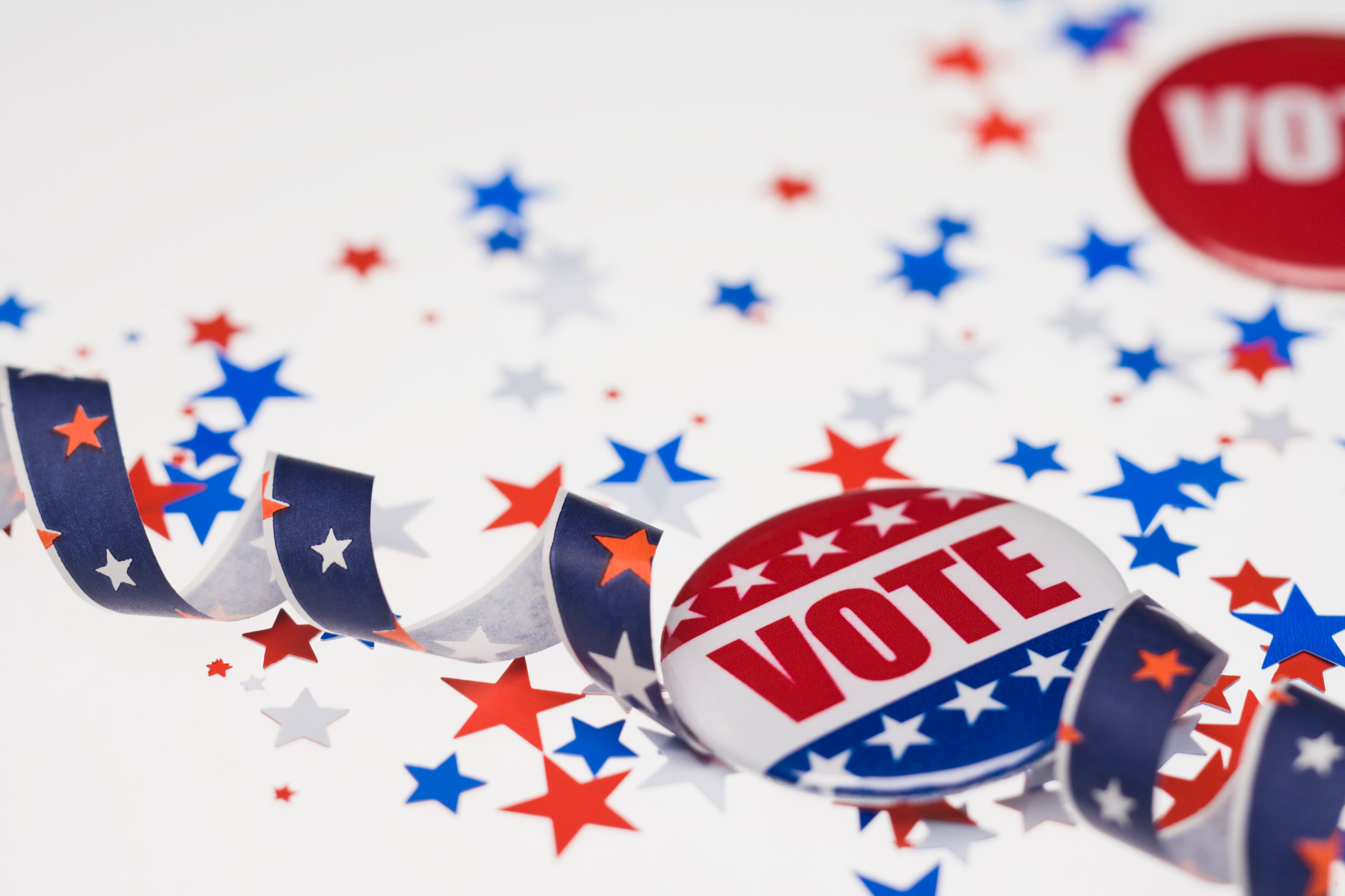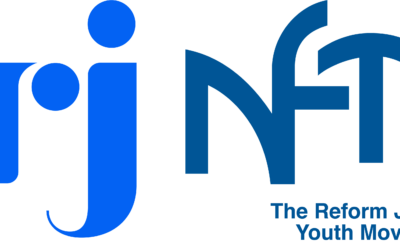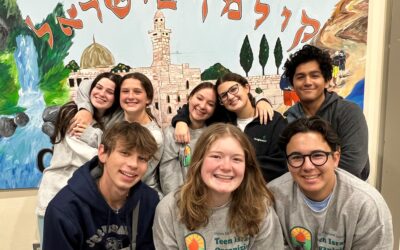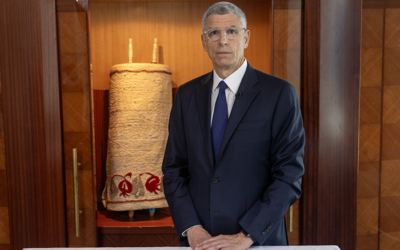By Jessica Becker, NFTY Social Action Vice President
As a child, my father and I would go to St. Pius Church every Election Day and I would help fill out his ballot. My dad would take out his driver’s license and I’d inform the woman in charge of the polling station that he was “Michael Becker on Galloping Hill Road.” With that hurdle cleared, we’d proceed to the voting booth where he would close the curtain, hold me up and tell me which handle to pull on the old dimple ballot machines that made a satisfying click-clack noise.
After turning in the ballot I would proudly affix the “I voted” sticker on my forehead.
As I grew older, I became more of an active participant in our democracy, having learned the importance of civic engagement from my father, and through the RAC, Kutz Camp and NFTY. In high school, I created a non-partisan flyer explaining the ballot initiatives in my home state of Connecticut. The flyer explained what “yes” and “no” votes would mean on measures that even some engaged voters were not familiar with, and I stood in the freezing rain for four hours handing out these sheets of paper outside the polling place.
I ended up meeting State Rep. Laura Devlin and State Sen. Tony Hwang, who were both shocked to see someone who was too young to vote helping educate those who could. I told them what I still believe: That no one should fill out a ballot blind. The point of an election is to accurately represent the people’s voice, and voters need proper information to make sure that happens.
Since then, I’ve worked on voting drives, helped people in my dorm and sorority get absentee ballots, and I’ve mobilized my college community around elections.
This past November, I voted in my first election. I remember the excitement when I opened my mailbox to find an absentee ballot and sat down in my dorm room with a black ink pen in one hand and a candidate information sheet in the other. Then I walked two miles – again, in a freezing downpour – to buy stamps and mail it to my election board back home.
Civic engagement, with voting at its center, is essential to our Reform Jewish Movement. Our sacred texts teach us that every voice in the community must be heard when it comes to making important decisions:
“For any community matter on which they cannot find common ground, they should convene all taxpayers, and they should agree that each will voice [their] view altruistically, and they will follow the majority,” Shulchan Aruch, Choshen Mishpat 163:1
The lesson here is that when a community has a disagreement, it should be resolved by a majority vote – a core tenet of modern democracies. Our texts also teach that showing up and taking action is the best way to have an impact. Casting your ballot will have a huge impact on this year’s crucial election. But as Jews pursuing justice, we can go further by helping to make sure that everyone in our communities has the ability, and makes the decision to vote.
Grounded in these Jewish values, our Reform Movement is working to mobilize hundreds of thousands of Reform Jews across the United States to make sure that every voice is heard and that every vote counts in November. Join me and other Reform Jewish leaders for an important virtual town hall on May 19, where you’ll hear about how you can help our Movement reach 100 percent voter turnout and work to fight voter suppression.
The 2020 general election will have an impact well beyond the next two or four years. Not only will each state vote on far more than the presidential race – with other national, state, local offices and ballot measures – but the people who are elected will make decisions with long-lasting impact. The most important thing you can do before voting is educate by reading up on each candidate and ballot measure. If you cannot vote, educate your family and friends about your state’s ballot to help them make an informed decision. To find out more about what will be on your ballot, visit vote411.org.
I’m asking you to make a promise to me, to those who cannot vote, to your friends, to your family, to your Jewish community, and most importantly to yourself: “I will vote in the 2020 elections. I will register others to vote. I will have an impact on these elections.”
Hold yourself accountable for 2020; we cannot stand idly by in a time where our voices must be heard, and history will be made.
